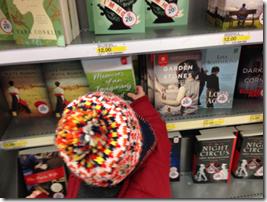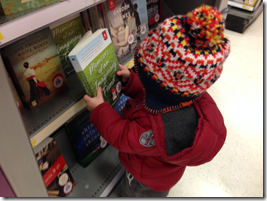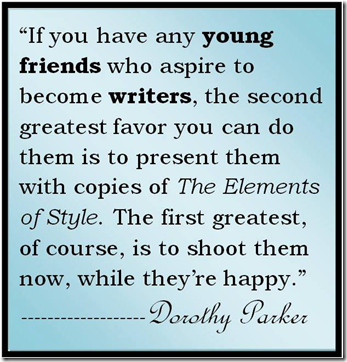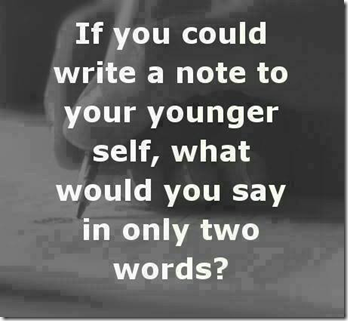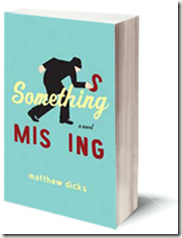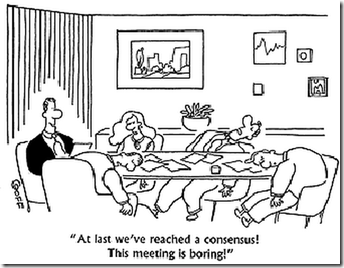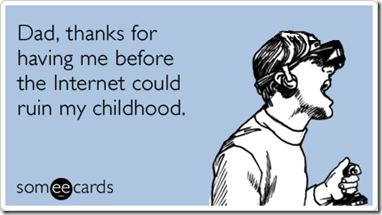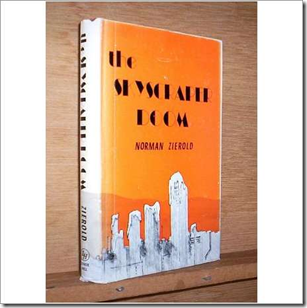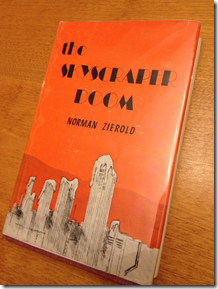Good news! America’s second favorite book is an actual book.
/More good news about the publishing industry.
In 1900, America’s second favorite book (after the Bible) was the Sears Roebuck Catalogue.
In the most recent Pew poll, America’s second favorite book (still trailing The Bible) was Gone with the Wind, followed by the Lord of the Rings trilogy, the Harry Potter Series and Stephen King’s The Stand.
Note the absence of catalogs in the list
Every time I hear someone proclaim the death of the book, I will remind them that in 1900, America’s second favorite book was a catalog. For all the problems that the publishing industry has, at least our readers are naming actual books in these most recent polls.
We’ve come a long way since 1900.
An unexpected silver lining (including butts with wings) in this brave new publishing world
/In the last five days, I have:
- Corresponded with my French translator about the French edition of my book and future books.
- Responded to questions from readers in Mexico, Thailand, Argentina, Germany and Turkey, as well as four states within the United States.
- Assisted in the publicity of my book in Italy and France by creating material for their online portals.
- Contributed a Q&A to a book blogger in Michigan.
- Received an email from a reader who explained how a single sentence in Memoirs of an Imaginary Friend has changed her relationship with her daughter for the better.
Yes, it’s true that there are fewer bookstores today. Less shelf space for books. And yes, advances are shrinking. Competition for readers’ attention is increasing exponentially. More books are being published today than ever before.
It’s becoming more and more difficult to sell a book.
Every six months or so, I read another piece asking if the novel (or even the book itself) is dead.
None of this is good. It is extremely difficult to make a living as an author today. A 2014 Digital Book World and Writer's Digest Author Survey revealed that 54% of traditionally-published authors earn less than $1,000 per year.
A quote from Dorothy Parker gained from traction on social media last week that captures the challenges of earning a living as an author well:
I have been exceptionally fortunate. I have published three novels in 6 years and my fourth book should hit bookshelves later this year. My most recent novel, Memoirs of an Imaginary Friend, has been published in 24 countries worldwide, and all three of my books have been purchased by international publishers.
Despite my good fortune, I would not be able to survive without the salary that I earn as an elementary school teacher. Though I love my job as a teacher and couldn’t imagine giving it up, there may come a time when I would like to devote all of my energies to my writing, but I don’t know if that will ever be possible.
And once again, I have been exceptionally fortunate.
But if I’m searching for a silver lining, it can be found in these last five days.
Never before have authors been able to reach readers as easily as we can today. The Internet has brought me just as close to my readers in Thailand as I am to readers one state away.
Thanks so the ease of online translation, I am able to communicate with these readers, even when we speak different languages. Yes, the sentences can be a little janky at times, but we are able to communicate without the assistance of a paid translator.
This evening I will be visiting with a book club in Ohio via Skype. About a dozen women will jam themselves into a living room and ask me questions about my work and my life while I am sitting at my dining room table in my pajamas.
Last month I visited with a book club in Riyadh via Skype. I pulled my car over to the side of the road, opened Skype on my phone and chatted with half a dozen women on the other side of the world about literature and writing.
Last year I participated in a literary festival in Italy by delivering a talk on a large screen via Skype to an audience of more than 200 people.
Other than a honeymoon in Bermuda, I have never left the United States, but I have spoken to readers in more than 30 countries in the last two years.
There’s more.
I am able to take the stage in New York or Boston, tell a story to an audience of 300-1,000 people and then post a video of that story onto my YouTube channel for my readers around the world to see. This month students at a college in Niskayuna, New York will be watching these stories on YouTube as part of a lesson on “distinguishing between experience from what we take-away from that experience.”
Perhaps a few of them will buy a book.
These are difficult times for authors who want to make a living by writing. They are even more difficult for authors with families to support. Unless you have written a bestseller (and maybe two) or sold your novel to Hollywood, it is likely that you are going to need a “real job” or a supportive spouse in order to spend your days writing.
But the challenges that the Internet and the digital world have brought to the publishing industry have also brought new and exciting opportunities. The ability to visit with a book club in South Africa or exchange emails with a class of students in Denmark will never make up for the disappearance of book stores, the shrinking of book shelves and the reduction in advances and loss of royalties for authors.
But on those days when the writing is hard and the editing is harder, and I and begin to wonder if I will ever be able to make a living writing books, an email or message through social media always seems to arrive at just the right moment, from some obscure corner of the world, thanking me writing a book, or telling me how my words have changed a life, or asking me to discuss the epilogue of my latest novel or inquiring frantically about my next book.
These messages do not pay the bills. They do not allow me to remain at home every day, toiling over sentences and filling plot holes. But they lift my spirits. They energize me. They remind me of why I started writing in the first place. They remind me of why I continue to write and would do so even if no one was paying me a dime.
Sometimes it’s as simple as a tweet like this that sends me back to the laptop with excitement and hope:
@ibieberavons I miss my book "The memoirs of an imaginary friend" ....whoever who stole it ... i pray that your butt grow wings -_-
My two words
/I know what I should say:
Invest AAPL.
Use the ticker symbol so I don’t accidentally invest in an apple orchard instead of the technology company.
But no. The monetary gains would be enormous, but there are two better words for my younger self:
Marry Elysha.
Yes, I ultimately marry her, at least in this future, but it isn’t worth the risk. Something could go wrong. I’ve been known to be an idiot before, and it might happen again.
I’m not opposed to amassing an enormous fortune, but I wouldn’t want to do it without her.
My mother missed my new life by four years.
/I completed revisions on a memoir last week about a summer of golf.
It was written almost accidentally, and I never thought anything would come of it, but it turns out that I like it a lot.
More importantly, so does my agent. With a little luck, I may have some good news about it in the near future.
It also turns out to deal with a lot more than just golf.
In one section, I’m writing about my mother, who died in 2007, when this thought occurs to me:
My mother died before I ever published a book, took a stage to tell a story or became a father.
She never met my children. She never read any of my books. She never heard me perform on stage.
Though seven years have gone by since her death, all of those things, which have become three of the most important parts of my life, existed just four years after her death.
Clara was born in January of 2009.
Something Missing published in the summer of 2009.
I took the stage and told my first story for The Moth in 2011.
Four years after my mother was dead, I was an author, a storyteller and a father.
In many ways, my mother never knew the person I was to become. It breaks my heart, both for me and especially for her.
My wife, the fashion designer
/My daughter’s pajama party themed birthday was yesterday, and as a party favor, my wife designed and sewed sleep masks for the kids.
The project has turned our home into a minor league sweat shop for the last week, with fabric, thread, needles, elastics bands and tools that I cannot identify strewn across tabletops, but as you can see, it was well worth the effort.
At least Charlie thinks so.
Four no more.
/Elysha and I were in Boston last night. I was competing in a Moth GrandSLAM at the Somerville Theater.
My former second and third grade student, Allison, was babysitting. She sent us four photos, with a label that the definition of bittersweet:
Her last pictures as a four year old. She says she misses you and loves you!
Today is Clara’s fifth birthday.
I can’t believe it.
Walter Cronkite rolled over in his grave
/How could someone not be fired for this decision?
Dolly Gray Children’s Literature Award
/Memoirs of an Imaginary Friend has been named the 2014 Dolly Gray Award “for promoting high quality children’s literature that includes positive and realistic characters with developmental disabilities.”
As an author, it’s thrilling whenever your book wins an award, but this one is extra special because in addition to writing novels, I am a teacher in a school with a large special needs population, and every year, I have one or more of these extraordinary students in my classroom.
To be recognized for my ability to portraying a character with developmental disabilities both effectively and positively is an incredible honor, just as it is to teach these students every day.
Change the world by changing the paradigm of meetings. PLEASE.
/Samuel Khan, the founder of Khan Academy, is featured in this month’s Harvard Business Review. In the piece, Khan explains that when it comes to meetings, Khan Academy’s policy is simple:
If people are meeting, they don’t need a lecture. If you don’t need them to interact, information should just be in a video or a memo.
On the HBR podcast, he went on to explain that if anyone at Khan Academy plans to speak for more than three minutes in a meeting, they are advised to record a video and make their talk available in perpetuity.
If only the world would follow this advice.
I can’t tell you how many times I have been sitting in a meeting, listening to information that could’ve been easily conveyed via email, wondering why 50 people just had to waste what amounts to four hours of productivity.
That’s the mindset that people should have:
Multiply the number of minutes you plan on speaking by the number of people attending the meeting and ask yourself:
Is the information that I am presenting worthy of that amount of lost productivity?
Imagine a world in which the mindless minutia of meetings are moved into the medium of email and video.
What a glorious place that would be.
The Greatest Generation is mine
/I have much to be grateful for in my life, but one of the things that I am most grateful for is this:
I am a member of the last generation that knew the world before the Internet.
I grew up in a wireless world. I spent my childhood absent of the Internet, social media, cable television, VCRs, cellular phones and connectivity of any kind.
I am so incredibly grateful for this.
I connected to the Internet when I was 23 years old. It was 1994. I was an early adopter.
I was fortunate enough to spend my entire childhood without the Internet and almost my entire adult life (including all of my college years) with it.
I can’t imagine a better way of growing up.
First date with Elysha: I also had no idea if we were on a date or just “hanging out.”
/A new survey commissioned by ChristianMingle.com and JDate.com says that when out with a potential love interest, 69% of singles have absolutely no idea if they’re on a date or just “hanging out.”
This is not as crazy as it sounds. The same thing happened with Elysha and me.
Elysha and I began our lives together as colleagues. We were teaching together, one room separating our classrooms. When we met, I was married and about to get a divorce, and she was less than a year away from getting married and about to break off the engagement.
As we both became single, we also became friends and started dating other people.
As our friendship grew, we began spending more and more time together. After a year, we found ourselves single again. I was already falling in love with her, but I also thought that there was no way in hell that she would ever date me.
She was Elysha. I was just me.
Even though we were talking on the phone until the wee hours of the morning and spending enormous amounts of time together, I assumed that we would always remain friends.
There was simply no way that I could ever envision this amazing woman ever wanting to be with me.
Then one day we went on a hike up Mount Carmel in Hamden, Connecticut. It was a beautiful spring day. We chatted and laughed all the way to the top, climbed to the top of the tower at the summit and spent time taking in the view.
As the sun began to sink lower in the sky, we proceeded back down.
Halfway down the mountain, Elysha reached out and took my hand. She didn’t let go until we were at the bottom.
That was the moment I knew that we were more than just friends.
That was the moment I knew that this hike up the mountain was a date.
We were living together less than three months later and engaged to be married eight months after that. It sounds like a whirlwind romance, but we were friends for so long before we fell in love that we knew immediately that we would be together forever.
But that first date?
I had no idea it was a date until she held my hand for the first time.
Productivity tip #1: Don’t fall behind.
/I receive many requests asking me how I seem to accomplish so much in such a short period of time. People who know me well would be more than willing to inform these knowledge seekers know that I am far less impressive than I seem. My flaws are numerous and my failings are considerable.
However, if there is an area in which I seem to have some skill, it is in the area of productivity.
I do manage to get a lot done.
In response to these requests, I’ve decided to post productivity tips on my blog. The purpose is to be helpful to readers who are searching for ways to get more done, but the real purpose is to assemble enough of these posts to construct the skeleton of a future book.
See that? My first tip.
I’m attempting to be productive by writing about productivity in small bursts with the hope that these small burst will someday result in a book.
The old “two birds with one stone” trick.
But the real productivity tip that I wanted to offer today is this:
Don’t fall behind.
It seems exceptionally obvious, but this is extremely important and often overlooked.
Always overlooked.
Correcting papers is a good example of this that I see a lot. If a teacher allows herself to fall behind on a week or two of correcting, the mountain of uncorrected papers transforms (in many people’s minds) into a long term project that will require a specifically assigned period of time to complete.
As a result, if that same teacher finds herself with 10 free minutes in her day (which happens a lot), it is far less likely that she will attempt to use those 10 minutes productivity in order to make a tiny dent in the enormous pile, since the progress made will feel meaningless.
Rather than working for 10 minutes, that time will likely be wasted, and those small slivers of time add up quickly.
I used to work with a teacher who had to take a sick day before writing her report cards because the mountain of grading that she had required a full day of work.
But if you don’t fall behind with your correcting and the pile of ungraded papers remains manageable, then the few extra minutes found during the day can truly be productive, and it’s far more likely that you will use these few extra minutes for productive purposes.
The same can be said about so many tasks.
Laundry is another good example. If you don’t allow dirty clothing to collect in enormous piles, and if you don’t allow folded clothing to fill numerous laundry baskets, then you will be in a better position to tackle a small load or put your clothes away when you find yourself with a few minutes to kill.
I put most of my folded clothing away while brushing my teeth or waiting for my wife to get ready for bed. This would otherwise be unproductive time, but because the amount of my clothing in the laundry basket is never overwhelming, I can complete enough of the job to make the time feel well spent.
This also applies to tasks like cleaning the garage, cleaning a closet, cleaning out your car or organizing a pantry. If you never allow any of these areas to go to hell, then you can use a few minutes here and a few minutes there to tidy a corner and make marginal progress but still feel like you’ve made a difference.
When you feel like you are able to make a difference, you are more likely to use that time productively.
But once your garage or basement or closet or car reaches the point that it will require hours to clean, you are far less likely to utilize the slivers of time between life to make progress.
This is not to say that you can’t or won’t. Writing a novel is an enormous, unwieldy, yearlong process (or longer), but if I find myself with 10 free minutes, I will sit down and attempt to write four good sentences.
But this type of productive vigilance is difficult achieve.
It probably requires a obsessive-compulsive personality combined with an abusively persistent existential crisis and an ongoing, incessant childhood desire to prove my worth to inattentive parents who are dead or have forgotten about me long ago.
Wow. I never thought of it like that before.
Most normal people would not approach the writing of a novel (or any enormous task) this way.
But everyone’s day is filled with slivers of time that are often wasted because the jobs that need to get done have become too large to make the use of that time seem meaningful.
It’s in these slivers of time that I get a lot done.
It’s where I get ahead.
It’s where I gain ground.
I take advantage of the 10 minutes here and 15 minutes there, and at the end of the day, these bits of time add up.
Part of my ability to use this time effectively is my unwillingness to allow any task to become too overwhelming.
It’s a mental game that requires constant vigilance. It requires an awareness of how you perceive progress and what holds you back from being productive.
If you keep the job small and manageable, you are far more likely to use the slivers of free time throughout your day more productively, and these few moments will add up quickly.
My very first library book found!
/In March of 2012 I wrote a post about the important role that my hometown library played for me when I was a child. As a person who grew up with very few books in the home and no age-appropriate books, the library was a sanctuary for me.
In the post, I also wrote about the very first library book that I ever borrowed:
I still remember the first book that I checked out of the library, but I cannot remember the title, and for years, I have been trying to find it. It was a dystopian science fiction story in which the tallest buildings in the world begin to liquefy, starting with the Sears Tower in Chicago, the tallest building at the time. The very tip of the building first begins to liquefy, and as the height of Sears Tower comes even with the second tallest building in the world, that building begins to liquefy as well.
Eventually all the buildings of the word begin to liquefy at exactly the same rate, throwing the planet into terror and chaos.
Ultimately, it is discovered that this is the work of an alien race that feels obliged to ensure that mankind does not advance technologically beyond a point that is considered safe. By keeping building no taller than six stories, the aliens believe that the technological advancement of the human race will be curtailed. Ultimately, every building of the world is liquefied to this point.
I asked readers if they knew the title of the book, and several (including a number of librarians) took guesses at the title and sent me to websites designed specifically for the purpose of locating books like this, but after hours of searching online, I had no luck.
The book was probably out of print and more than likely ceased to exist.
More than a year after writing the post, after I had all but given up the search (and forgotten about it entirely), a reader named Jim Uren posted a suggestion in the comment section:
Any chance the book was “The Skyscraper Doom?”
The name sounded familiar, but I told myself not to get excited. It was likely another wild goose chase. I went to Google, typed “Skyscraper of Doom” into the search box and this was the first image that I saw:
I had found the book. I couldn’t believe it.
The book was out of print, so it wasn’t easy to to obtain a copy, but today, Skyscraper of Doom, the first book that I ever borrowed from a public library, is sitting on my dining room table, waiting to be read.
Will this book prove to be as captivating as it was circa 1981?
Probably not.
I’ve read thousands of books since then, so my standards of excellence have been raised considerably.
But that doesn’t matter. When I started borrowing books from the library, a brand new world was opened to me. I read this book in just a few days and hundreds soon followed.
Agatha Christie. Stephen King. Douglas Adams. Frank Herbert. Mark Twain. J.R.R. Tolkien. Harper Lee. Orson Scott Card. Madeleine L’Engle. Ray Bradbury. Sir Arthur Conan Doyle. William Golding. S.E. Hinton.
I couldn’t get enough of these authors.
I was suddenly on a path to reading and writing and has led me to where I am today. Without the generosity of the public library, it’ likely that I wouldn’t be an author and might not love reading the way I do.
I took my first steps on that literary path with a book written by Norman Zierold, a Hollywood biographer with eight books to his credit including a memoir entitled That Reminds Me that published earlier this month.
It turns out that Skyscraper of Doom was his only novel.
Norman Zierold’s only foray into fiction changed a reader forever.
My daughter attributes her difficulties with sharing to the assassination of MLK
/I told my four year-old daughter that I don’t have to work because it’s Martin Luther King Day. “That’s a day when we celebrate the life of a man named Martin Luther King.”
“I know,” she said, almost dismissively.
“You know about Martin Luther King?”
“Yes,” she said. “We read a book about him in school. And we talked about him.”
I was impressed. “What do you know about him?”
“He was a man who was shot and and had to die,” she said. “He helped a lot of people.”
I was a little surprised that she even knew what being shot meant (and maybe she doesn’t), but I pressed on. “How did he help people?”
“He taught people how to share. No matter what color they are. That’s why I sometimes have a hard time sharing. Because someone had to shoot him, so now he’s not here anymore to help me anymore.”
She sounded annoyed as she said this. Angry, even. Like someone had taken Martin Luther King away from her, which is essentially true.
Not bad. A basic understanding of Dr. King’s message, wrapped up in the self-centeredness of a four year-old child.
The perpetual search for a good parking spot is probably insane
/Slate’s Justin Peters argues that handicapped parking fraud is one of the jerkiest crimes imaginable.
I agree.
My evil stepfather didn’t teach me much and demonstrated little by way of moral judgment, but when he saw a car parked illegally in a handicapped spot, he would scratch the paint with his car key.
Not the best example to set for your child, but at least he was talking a stand against something.
The most baffling aspect of of handicapped parking fraud is the risk-reward involved:
Park a little closer. Save a few steps. Risk a hefty fine and being labeled as a social pariah.
It’s just not worth it.
Almost as infuriating is the senseless desire to find a parking spot close to the entrance to a person’s destination. The amount of time that the average person is willing to invest in order to avoid walking 50 feet is astounding.
I have known people who will spend 15 minutes looking for a good parking spot at the mall in order to save 100 steps, knowing full well that their intention is to spend the next four hours walking thousands of steps inside the mall.
It’s insane.
I would love for an economist to do a study on the time and energy wasted searching for a good parking spot versus adopting the policy of driving to the end of the row and parking as far away as possible, even when a closer spot is clearly available.
I strongly suspect that consistently parking at the end of the row, without any attempt to park closer, would prove to be a time saver in the long run, and perhaps get you a little more exercise in the process.
I would adopt this policy myself, but I am married to a woman who really likes a good parking spot.
The sacrifices we make for our spouses.
Boy and girl in dryer
/When I was a boy, I would hide in the dryer when playing hide-and-go-seek. Occasionally my father would start the dryer, sending me for a warm tumble.
It was the 1970’s. A strange time in America.
This isn’t the same thing, but it’s close.
Perhaps a more appropriate version of what I used to do as a child. Much less dangerous (so not quite as fun) but still pretty great.




